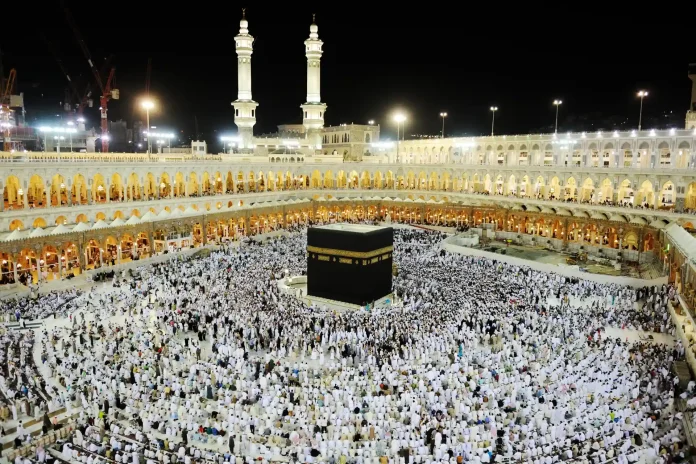Hajj and Umrah are two major pillars of Islam that represent the journey of pilgrimages to Mecca, Saudi Arabia. However, understanding the difference between Hajj and Umrah is very important for the muslims planning such a spiritual journey. While both include visiting sacred sites and performing rituals, there are considerable differences in terms of obligation, time, duration, and specific ceremonies. Understanding these distinctions helps that Muslims take the journey that is most appropriate for their circumstances and meets their religious responsibilities.
Difference Between Hajj and Umrah
Hajj holds the greater weight, being one of the Five Pillars of Islam. Every able-bodied Muslim with the financial means is obligated to perform Hajj once in their lifetime. This pilgrimage occurs during a specific period in the Islamic calendar month of Dhul Hijjah.
Umrah, on the other hand, is a voluntary act but highly recommended by Prophet Muhammad (PBUH). Muslims can choose to perform Umrah at any time throughout the year, except for the days of Hajj.
Hajj: “Hajj is the fifth pillar of Islam,” says Imam Omar Sharif of the Noor Mosque, “and obligatory for every able-bodied Muslim who has the financial means to undertake the journey at least once in their lifetime.” It occurs at a specific time in the Islamic calendar of Dhul Hijjah.
Umrah: “Umrah is a voluntary pilgrimage,” explains Imam Sharif, “but highly recommended by Prophet Muhammad (PBUH) as a way to cleanse oneself from sins and seek blessings from Allah.” Unlike Hajj, Umrah can be performed at any time throughout the year, except for the days of Hajj.
Also! What is Hajj Moon Sighting?
Rituals of Hajj and Umrah
Hajj is a longer journey, lasting about a week to accomplish all of the compulsory ceremonies. These consist of entering a special state of Ihram, circumambulating the Kaaba (Tawaf), running or fast walking between the mountains of Safa and Marwa. A defining aspect of Hajj is Wuquf, standing on the plains of Arafah during a specific time frame Then throwing stones at three pillars implying the devil (Jamrah), sacrificing an animal (Qurbani), and shaving or cutting hair (Tahallul). This entire process typically takes a week.
On the other hand, Umrah is a shorter pilgrimage, often lasting only a few hours. It includes some key rituals from Hajj, such as Tawaf and Sa’i, but excludes others, such as Wuquf, Jamrah, and Qurbani.
Spiritual Significance of Hajj and Umrah
Both Hajj and Umrah provide deep spiritual experiences. Hajj symbolizes a journey of togetherness and ultimate submission to God. Muslims stand together, clothed in plain white clothing, removing socioeconomic boundaries and focusing entirely on their religion. It is an opportunity to renew one’s faith, beg forgiveness, and reflect on a person’s journey.
Umrah, although shorter, offers a similar spiritual refreshment. It is viewed as a way to cleanse oneself of sin and draw closer to God. Many Muslims perform Umrah on a regular basis in order to renew their faith and get spiritual benefits.
Planning for Hajj and Umrah
Both Hajj and Umrah need detailed planning and preparation. Pilgrims must be physically fit to handle the hardships of their trips. Because of the huge number of pilgrims, a quota system is frequently in effect for Hajj, therefore applying early is essential. Visas and travel logistics must also be addressed.
More! Shift of Economic Cycle During Eid ul-Adha
Ultimately, Hajj and Umrah are different manifestations of faith and devotion, both providing opportunities for spiritual refreshment and communion with God. Understanding the major difference between Hajj and Umrah allows Muslims to make informed decisions about which trip is suitable for their circumstances and spiritual goals. This knowledge can also lead to a greater respect for the wide range and variety of Islamic traditions.



